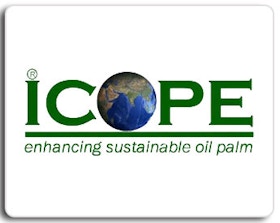Although agriculture has a relatively lower energy consumption compared to other industries, its contribution to GHG emission is significant, and forms around 25% of global emissions. These arise mainly from land use change, fertiliser utilization and waste production. However, the practice of agriculture which has the capacity to fix carbon in the biomass and in the soil, is also recognized as the only human activity that can play a positive role in mitigating climate change.
It is expected that COP21 will recognize this important capacity of agriculture to contribute to climate change mitigation. We want to drive efforts in making the palm oil industry a leader in climate change mitigation in the tropical agricultural sector.
Leveraging on the success of ICOPE 2014, which recognized the potential of the palm oil sector to become a model for tomorrow’s sustainable agriculture, ICOPE 2016 will focus on the potential of the palm oil industry to mitigate as well as adapt to climate change.
ICOPE 2014 saw the attendance of more than 450 participants from 20 countries. ICOPE 2016 is once again inviting concerned stakeholders, including scientists and practitioners, NGOs and government institutions, small farmers and the agro-industry, to come together to deliberate on potential and practical options in mitigating and adapting to climate change.
ICOPE 2016 will include presentations, discussions and debates on the following key topics:
- How to reduce emissions from new development of oil palm vis-a-vis the High Carbon Stock (HCS) approach in forest conservation policies. The challenges facing smallholders and local populations.
- How to reduce emissions in oil palm cultivation, with a special focus on fertiliser management.
- How to reduce emissions from fruit processing, looking at the energy profile of mills, methane capture development and regulations.
- How to increase carbon fixation in the oil palm agro-system with particular emphasis on soil carbon fixation and the huge potential of palm oil biomass production.
- A special session to better understand how palm oil will benefit from the development of second-generation biofuel.
- How oil palm can adapt to climate change in order to maintain its superior productivity.
Sponsor/exhibitor contact
Mr. Suma Nugraha
[javascript protected email address]
Publish your content with EB Publishing
It's about who you reach. Get your news, events, jobs and thought leadership seen by those who matter to you.











